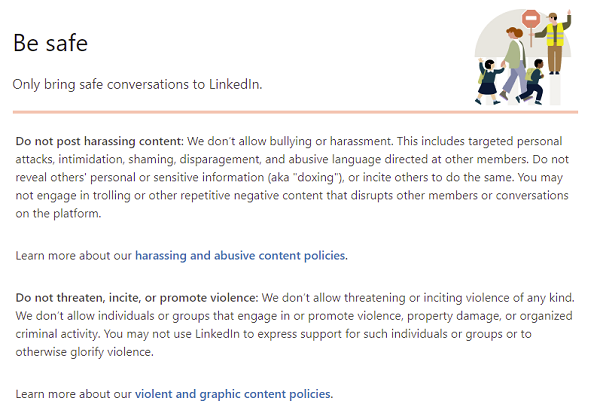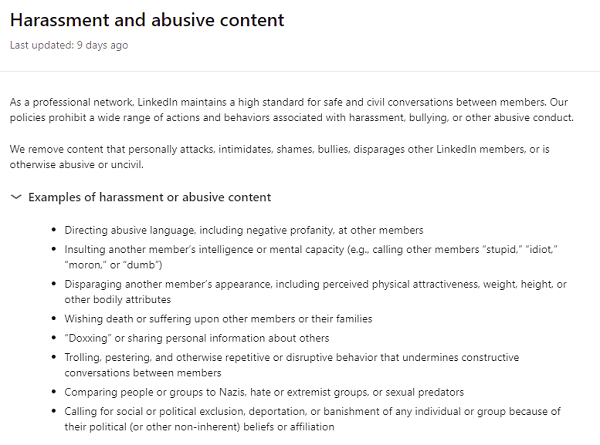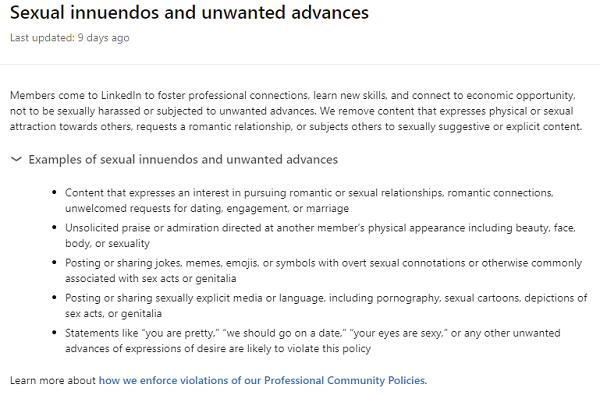LinkedIn has announced an update to its Professional Community Policies, which dictate what’s allowed, and what’s not, within your various LinkedIn communications.
The updated policies aim to provide more insight into specific elements of in-app engagement – because people, especially women, are sick of LinkedIn being used as a hook-up site by overeager users who like the looks of their profile image.
That’s not the only reason, but definitely, reports of harassment via LinkedIn’s InMail have been rising.
As explained by LinkedIn:
“As part of our updated policies, we’re publishing a set of expanded resources for members to better understand our policies and how we apply them, including detailed examples of content that isn’t allowed and how we handle account restrictions. While harassment, hate speech, and other abusive content has never been allowed on LinkedIn, we’ve added what types of comments and behaviors go against our Professional Community Policies.”
In this updated format, LinkedIn’s new policy overview includes specific sections outlining what’s not allowed in the app, with links that you can click on for more information.

Follow the links and you’ll be taken to the relevant LinkedIn Help article on that topic, which also includes a section that shares more specific explainers on what’s not allowed in the app.

The aim is to provide more direct insight into what you can’t do in the app, and with engagement continuing to rise across LinkedIn, it makes sense that, logically, LinkedIn is also going to see more interactions that violate these terms.
And as noted, women are disproportionately targeted by such activity.
A report by CTV Canada last year found that many female LinkedIn users regularly receive inappropriate messages from men, who’ll often reach out to tell women that they find them attractive. Fast Company reported in 2020 that posts from female users are often targeted with ‘derision, marginalization and even outright hate’, despite LinkedIn being a lass anonymous platform than others, while many other women have reported similar advances or attacks by users in the app.
LinkedIn does have a specific policy against ‘sexual innuendos and unwanted advances’, which now also includes more examples of what’s not allowed.

But the fact that this is even necessary is a little disconcerting – and really, this does seem to be the main focus of this new update, providing more context around what you can’t do in the app, which is really an expansion of general workplace etiquette and ethics.
It seems like that should be a given, and that all users should be able to engage in a professional manner, but of course, as with any widely used platform, there will always be some that push the boundaries, and break the rules, especially if those regulations are unclear.
Which is what LinkedIn’s seeking to clarify, and hopefully, this new format will make it easier for people to understand what they can and can’t do in the app.
You can check out LinkedIn’s updated Professional Community Policies here.



